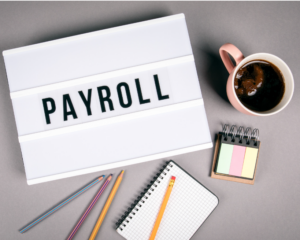Are you in the business of hiring out assets to your customers on a long-term basis? Do you hire of them out for more than 2 years? If so, it’s critical that you register your assets with the Personal Property Securities Register (PPS Register). Failure to do so could result in you losing the equipment that you own to the Insolvency Practitioner (IP) of your client. Which means that you can lose your assets to an IP when your clients become insolvent.
Failure to register has seen many hiring companies’ loose assets ranging from motor vehicles to sophisticated plant & equipment.
How to register with the PPSR
The most crucial part of compliance is registering on the PPS Register (think large public noticeboard). An online registration is made, providing your details and those of your customer and a description of the property you supply. Sounds simple, however it can be tricky and if you make an error your registration is likely to be invalid.
What are the typically challenges of registration?
Registration can be even more complicated where your property involves Serial Numbered Goods (motor vehicles, aircraft and vessels) and particularly difficult if your property is then “on-hired” by your customer.
What can I do to minimise bad debt loss?
But it doesn’t need to be that way. You can minimise a bad debt loss by registering your customer on the PPS Register. A national register came into effect on 30 January 2012. It allows individuals and businesses to record where they have a security interest in assets while those assets are not in their possession. The register is publicly accessible and updated in real-time.
What is the PPS Register and the PPS Act?
The PPS Register is a national online database that shows all registered security interests that businesses have in their personal property. Personal property includes vehicles, plant and machinery.
The PPS Act is the main piece of legislation that underpins the operation of the single national register, the PPS Register, for the registration of security interests in personal property. This legislation affects any business that hires, leases or rents goods without being paid first. So, if you’re a trade creditor, a financial institution or you hire equipment, it’s important to understand the impact that the PPS Act may have on your business.
Benefits of registering with PPS Register?
Registering your business with PPS Register provides the following protection and benefits;
- Ability to collect or even receive payment of your assets that are still with your customer
when the IP was appointed. You could even collect property previously paid for by the
customer; - Ability to be paid from trade debtors;
- Most likely, immunity from receiving an Unfair Preference; and
- Increases the likelihood of being paid in full when a customer sells their business.
What is the cost of registering on the PPS Register?
The cost of registration is just $6 for 7 years. That $6 investment provides protection for an unlimited number of transactions for an unlimited value. Cheap as chips!
How can Morrows help?
The PPS Act is quite complex, and registration can be a tricky process. Before you get started, we suggest you speak with your Morrows Tax and Business advisor. Our advisors can assistance in determining your exposure and helping you understand the registration or renewal process.



